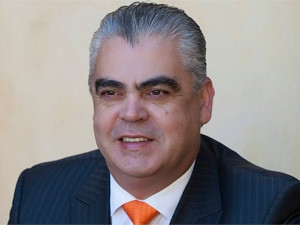
Cell C has continued to expand in 2013, signing up four million subscribers in 18 months to bring the company's tally to 13 million, according to acting CEO Jose Dos Santos.
Aggressive price cuts have fuelled the expansion, but that has in turn placed pressure on the network. Scrambling to rollout capacity, the company has exceeded its target of new transmission sites, with 110 new sites in Gauteng and 98 elsewhere in the country, bringing the network's total to 4 040. A further 350 new sites should be live by the middle of 2014, Dos Santos said.
Despite the improved capacity, Dos Santos conceded Cell C still lags its competitors in terms of network quality, with its call setup success rate marginally behind the industry average of 97-98%, but said he was confident the company would close the gap.
The operator remains committed to its price war with its rivals, with much riding on its favourable interconnect rate. Mobile termination rates - the rates operators charge each other for connecting calls across networks - have been skewed in favour of those with minority market shares, allowing more aggressive pricing.
The Independent Communications Authority of SA (ICASA) is steadily reducing interconnect rates, proposing hefty cuts over the next three years from 40c per minute now to 10c per minute in 2016, and with increased asymmetry for underdogs.
Vodacom and MTN are strongly lobbying against the changes, claiming it disadvantages them. If they succeed in reducing ICASA's proposed rates cut, Cell C's ability to execute on its plan may be jeopardised.
Dos Santos says Cell C is unwilling to commit to specific price reductions which could be achieved through the new rates, saying only that the market, and the regulator, should "trust our track record".
ICASA set the minority threshold at 20% of market share, a mark Cell C is now approaching, with 17% of the market in 2013, according to the Mobility 2014 study by World Wide Worx.
And all the operators are desperate for new spectrum to facilitate the rollout of high-speed LTE. Without new spectrum assigned, Cell C and its rivals are hampered in their network upgrades.
Consolidation on the cards
Much speculation is flying about possible consolidation within the operator market, with a possible tie-up between Cell C and 8ta offered as a likely scenario.
Dos Santos, while acknowledging that "consolidation is inevitable" in the local market, declined to be drawn on specifics.

Cell C CEO, Alan Knott-Craig, is currently on indefinite leave after suffering a minor stroke, though he is "recovering well and walking around," Dos Santos said.
It is unclear what role, if any, Knott-Craig will resume at Cell C. With a history of illness including multiple heart attacks, shareholders may feel the pressure to change the executive structure, moving Knott-Craig into a less demanding role.
Dos Santos notes the company has a "strong succession plan" and for now it is "business as usual" executing on the strategies Knott-Craig had established.
2014 will be a fresh start for Cell C, taking occupancy in its new corporate headquarters in Midrand, possibly armed with a favourable interconnect regime, ahead of schedule on its network rollout, and potentially with a change of leadership as well. It will be under close scrutiny to deliver on its promises to shake up the market for local mobile users.
Share